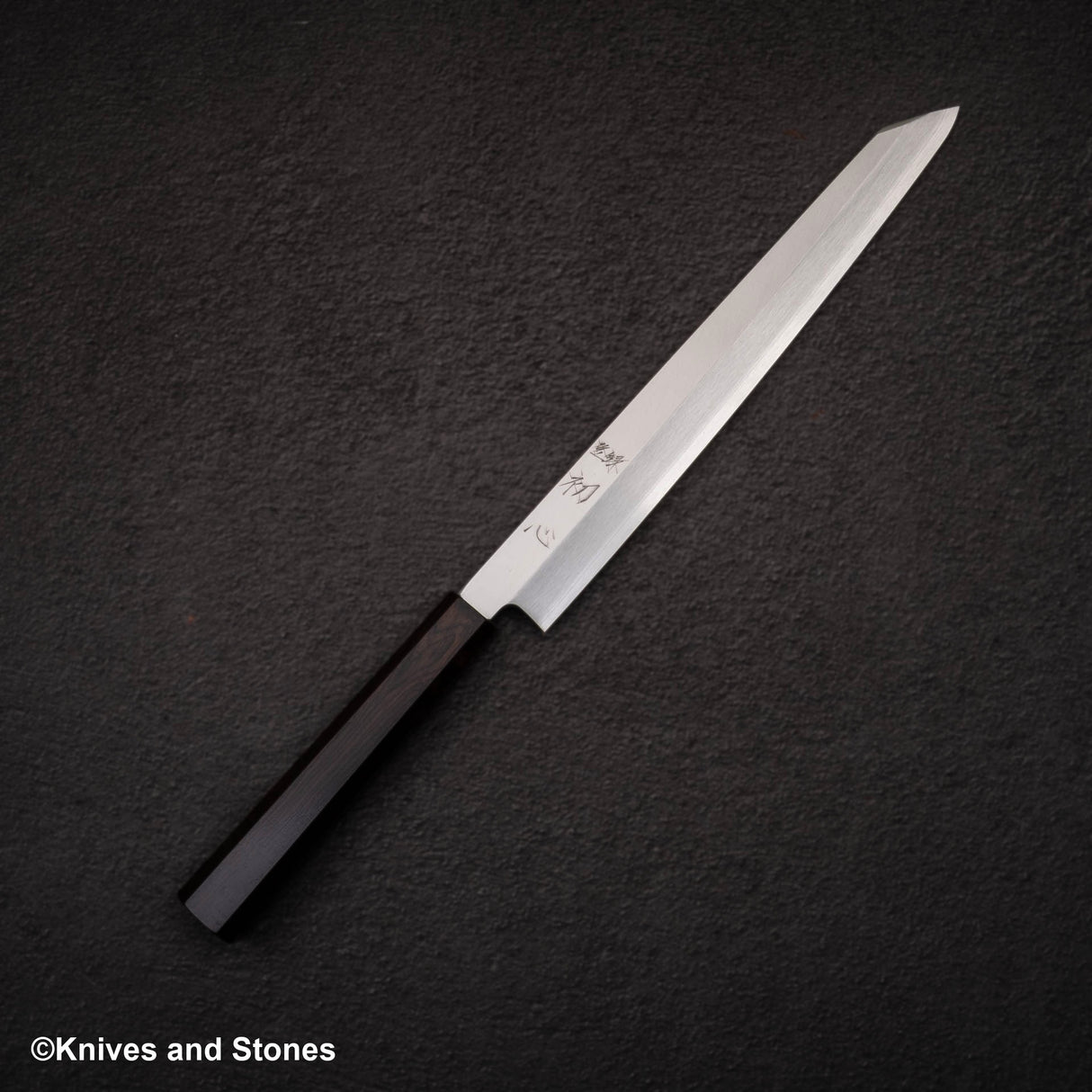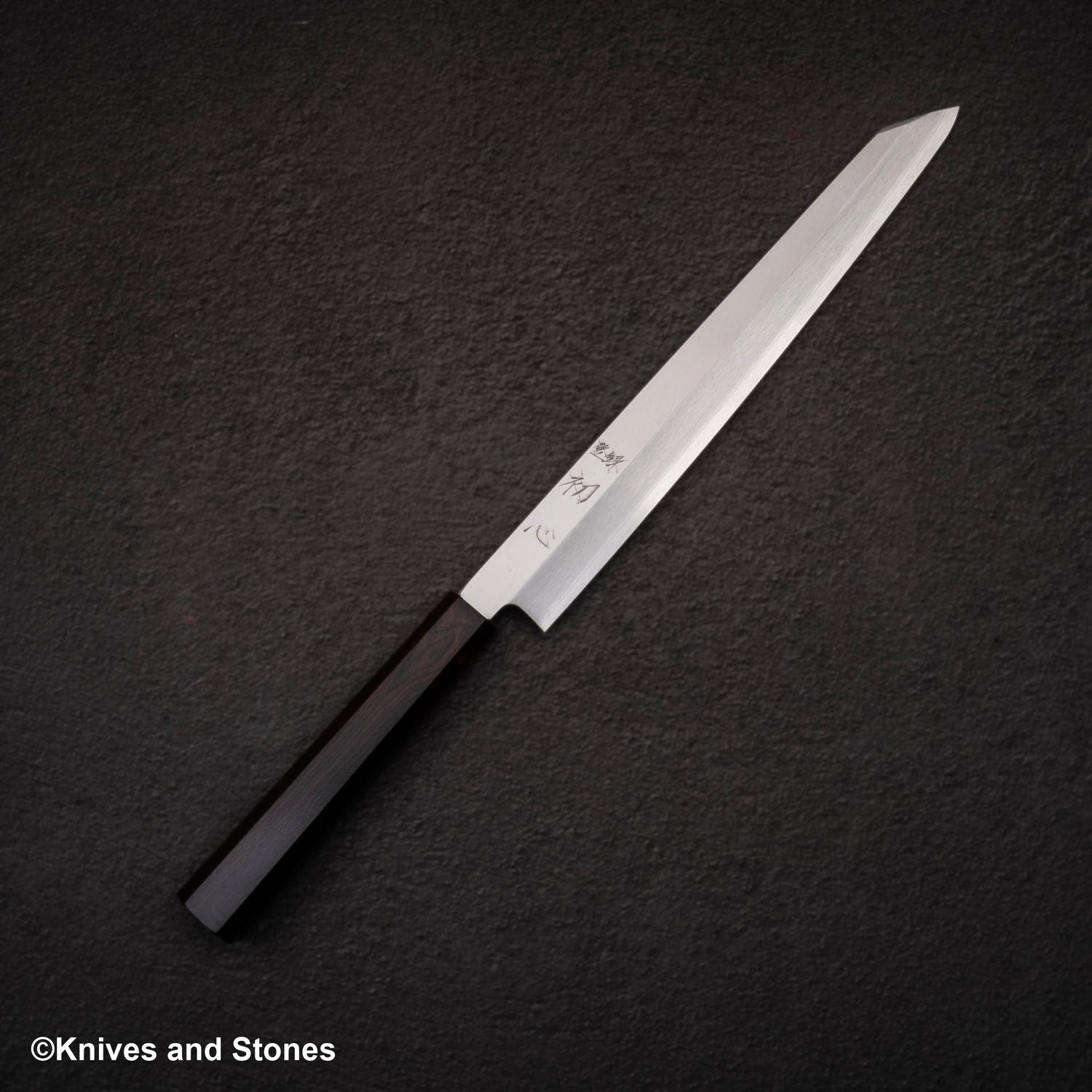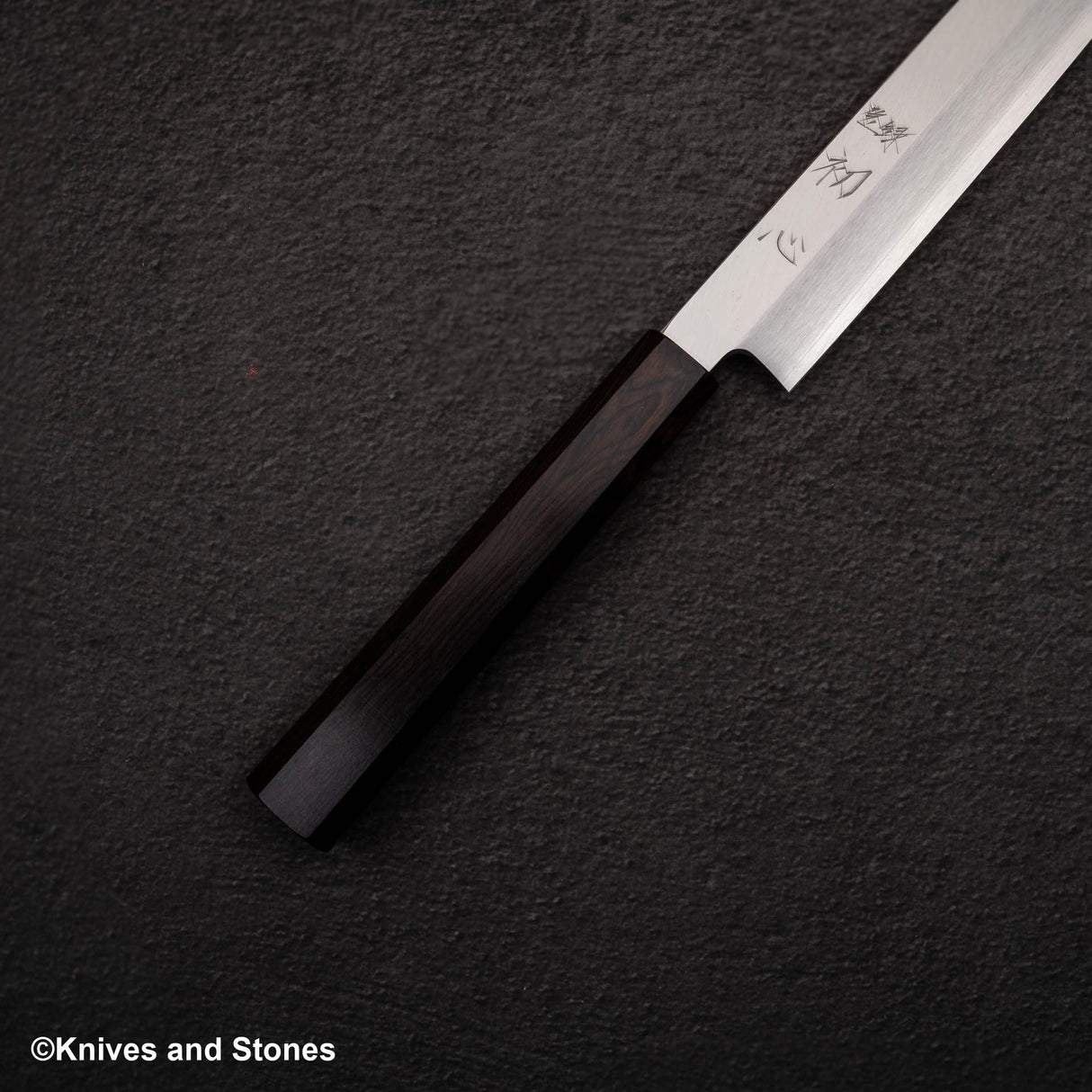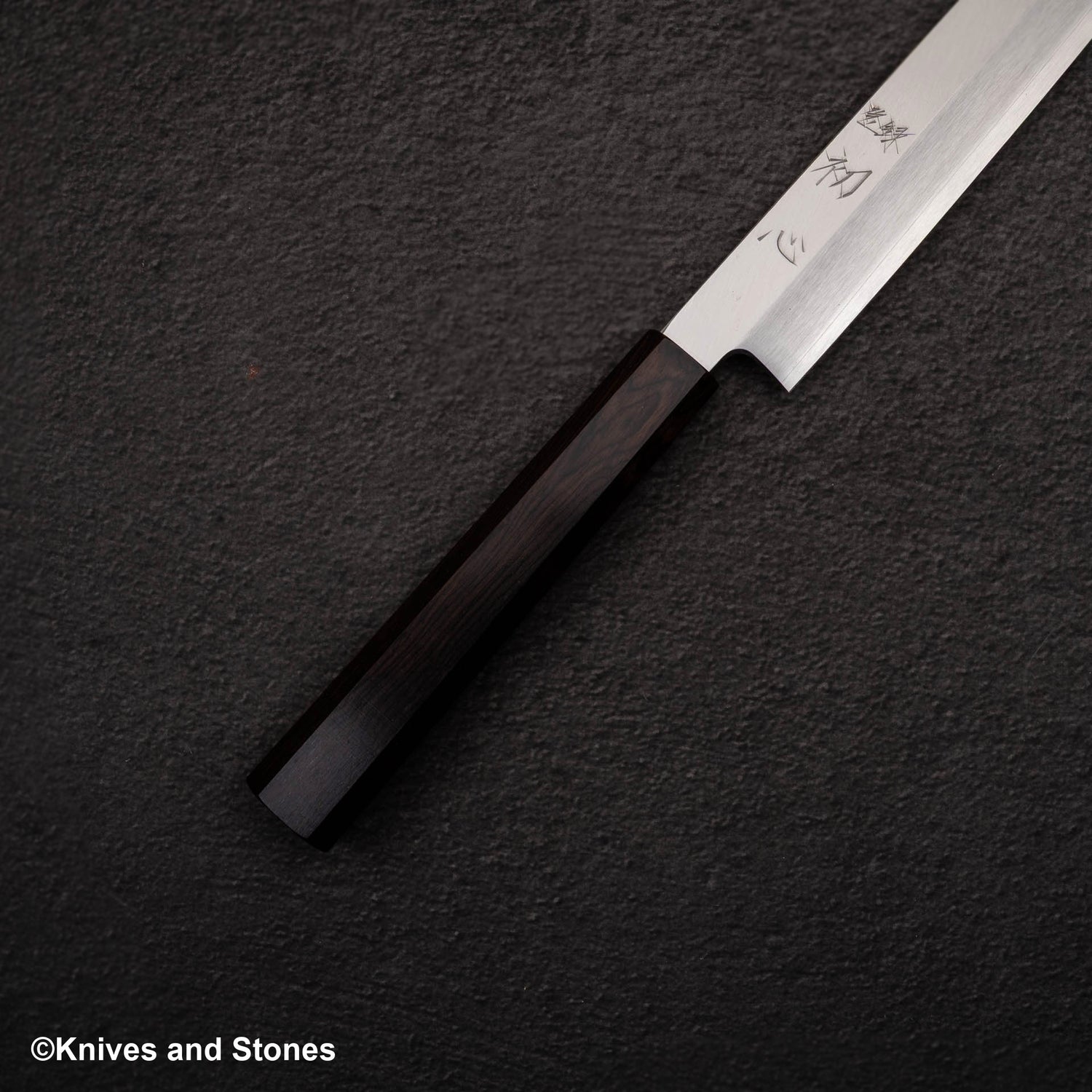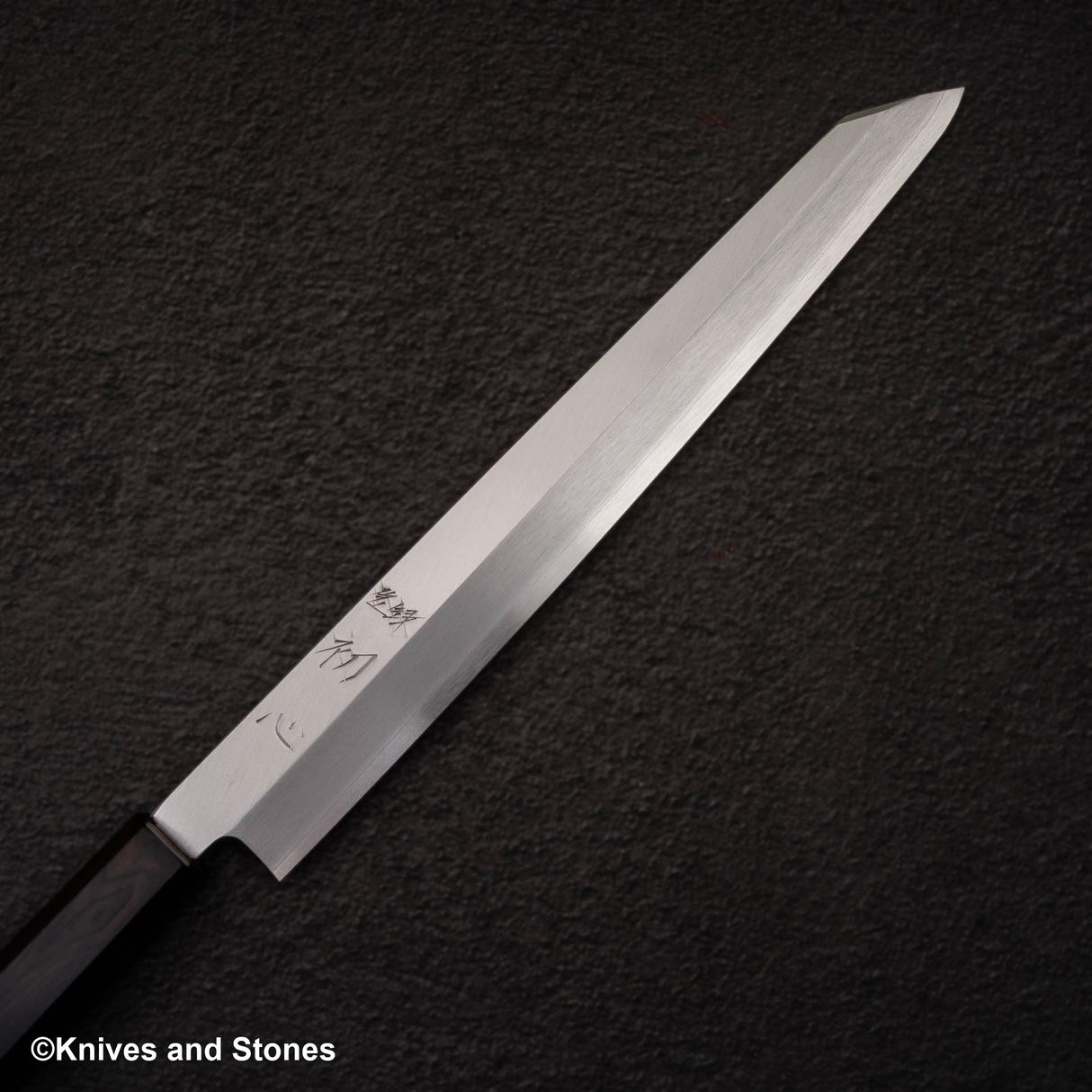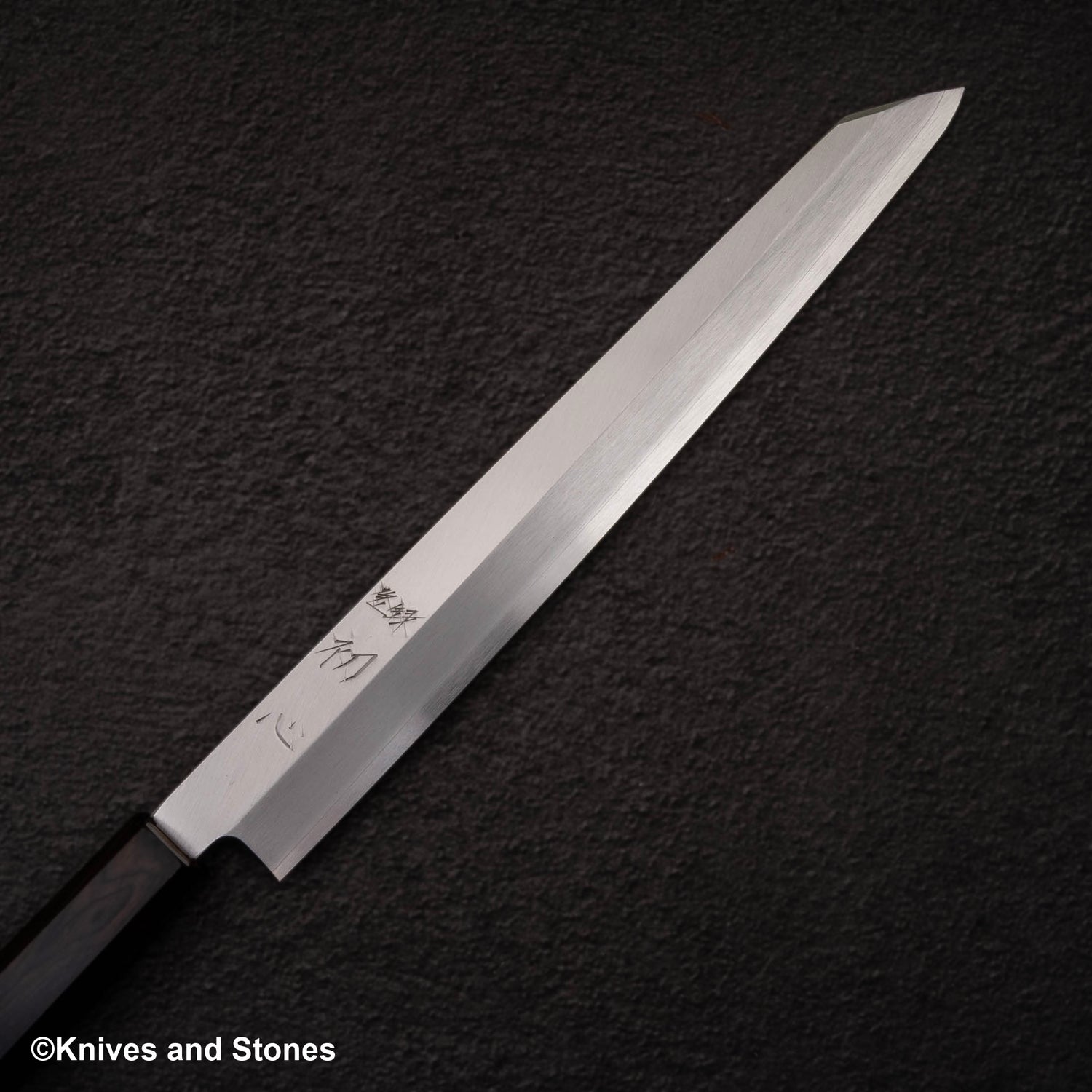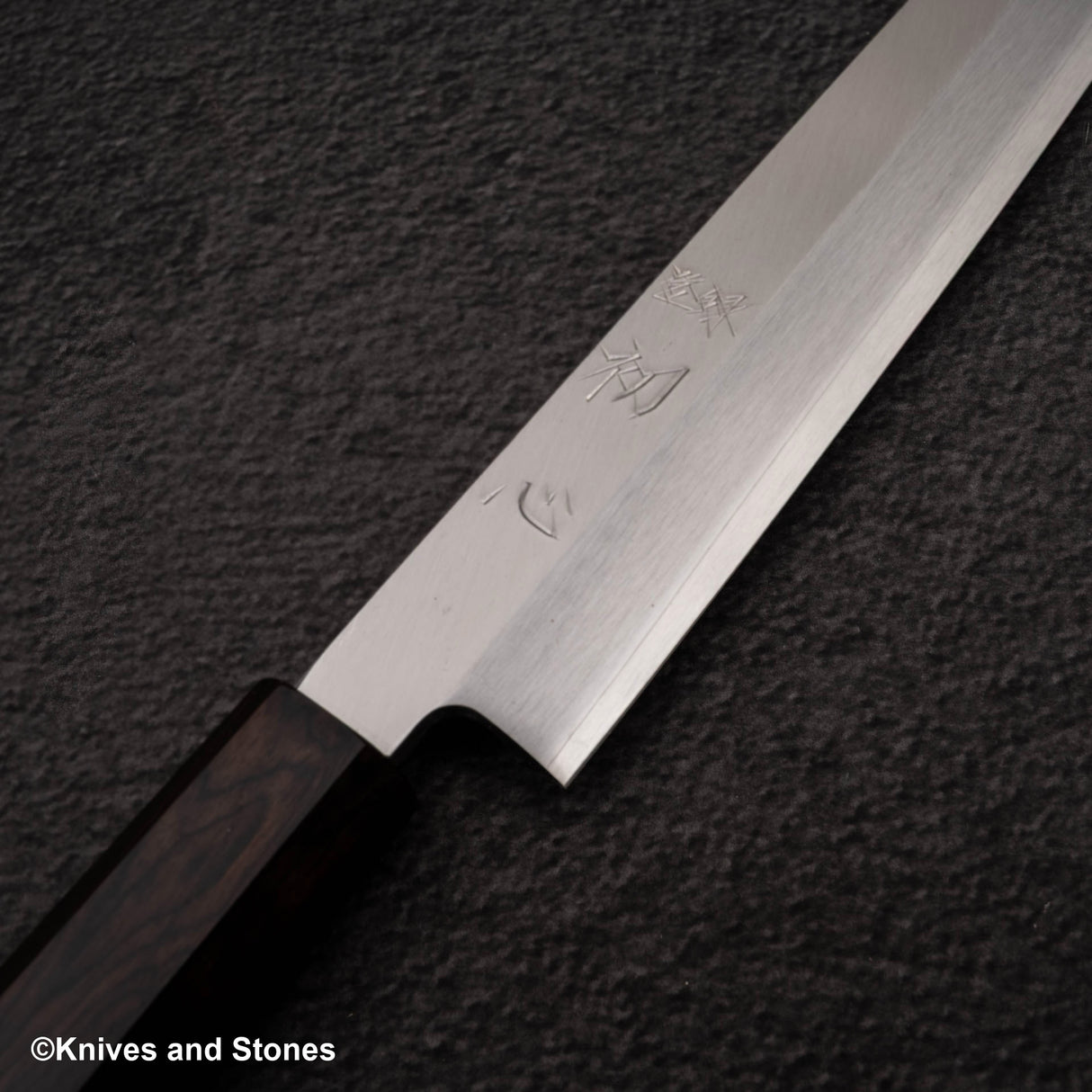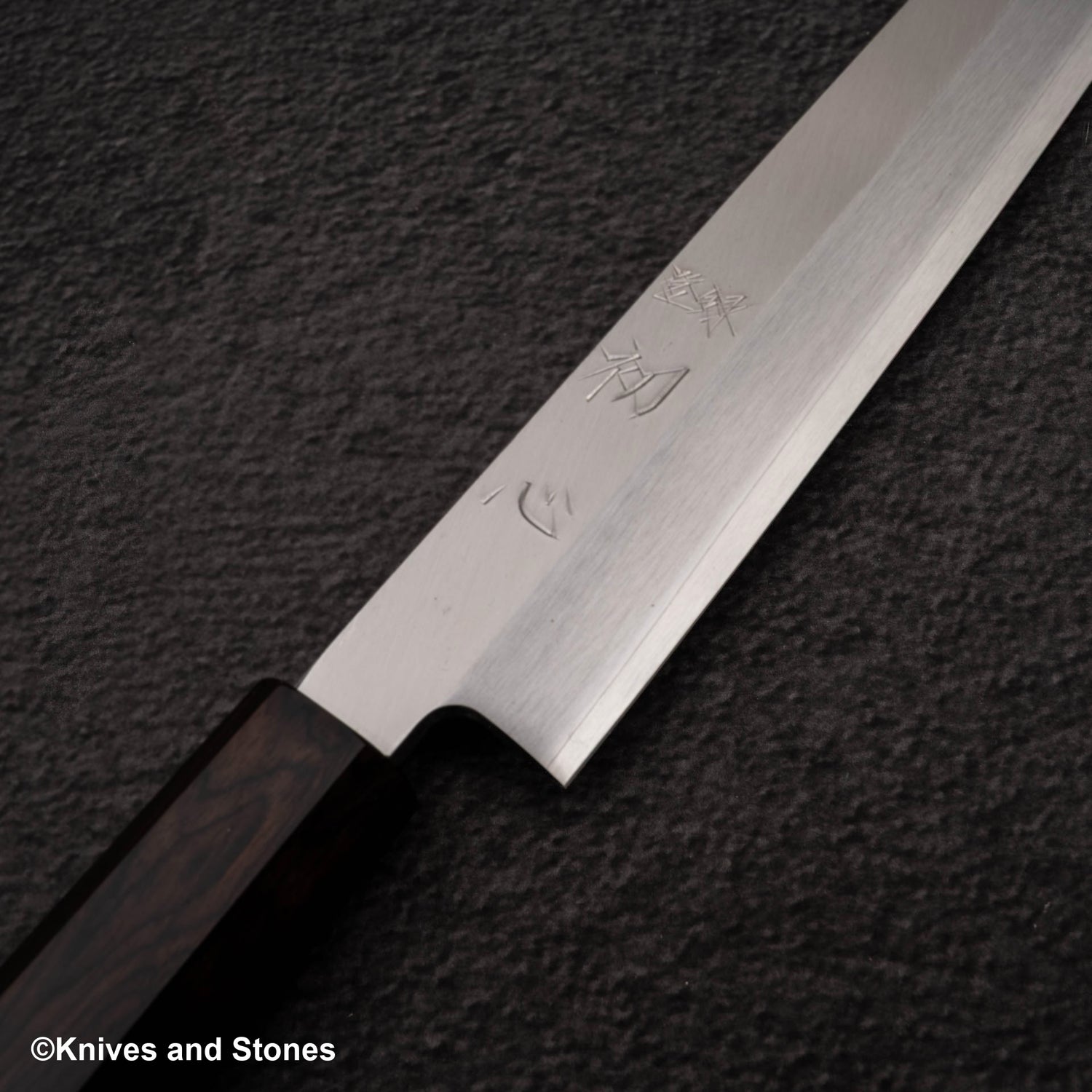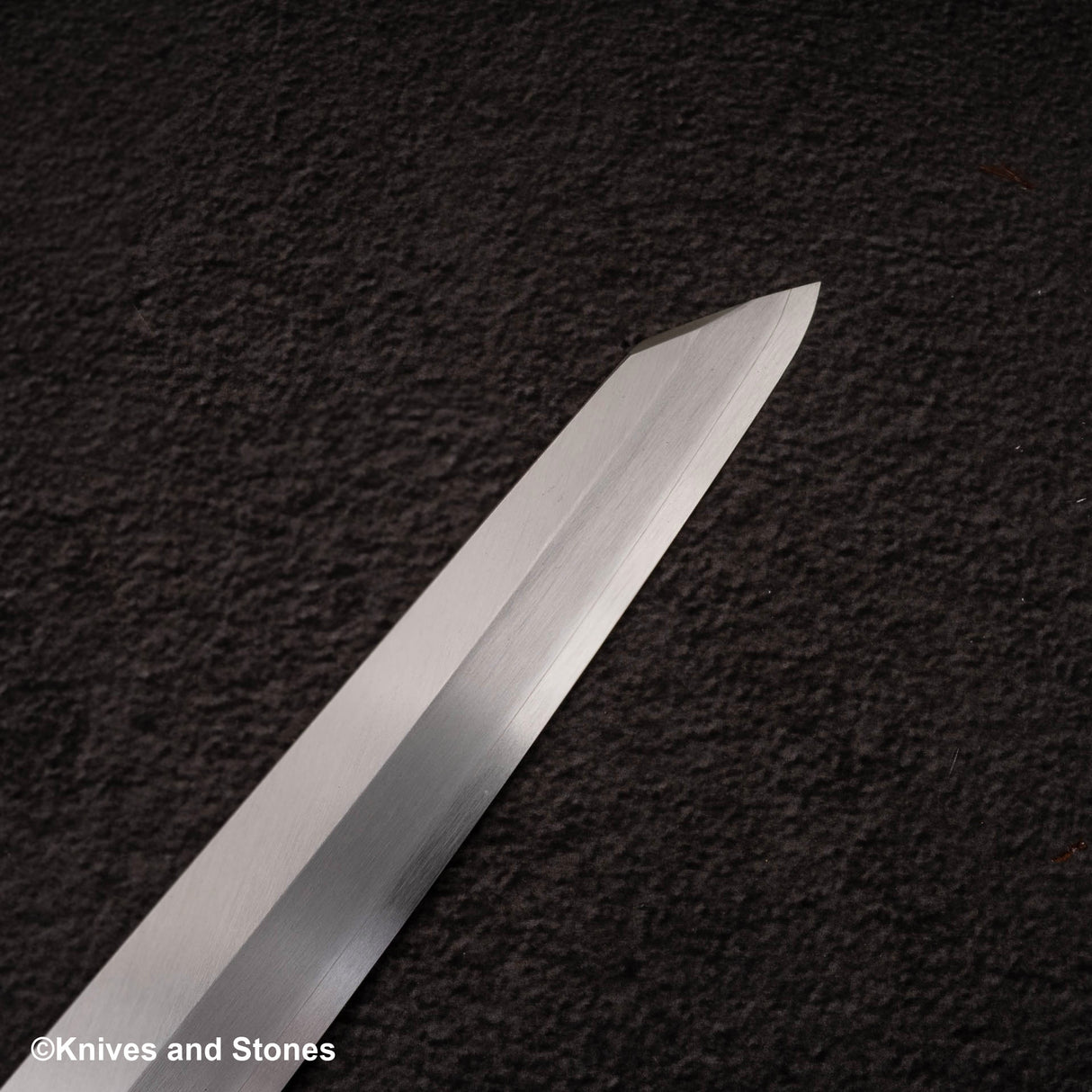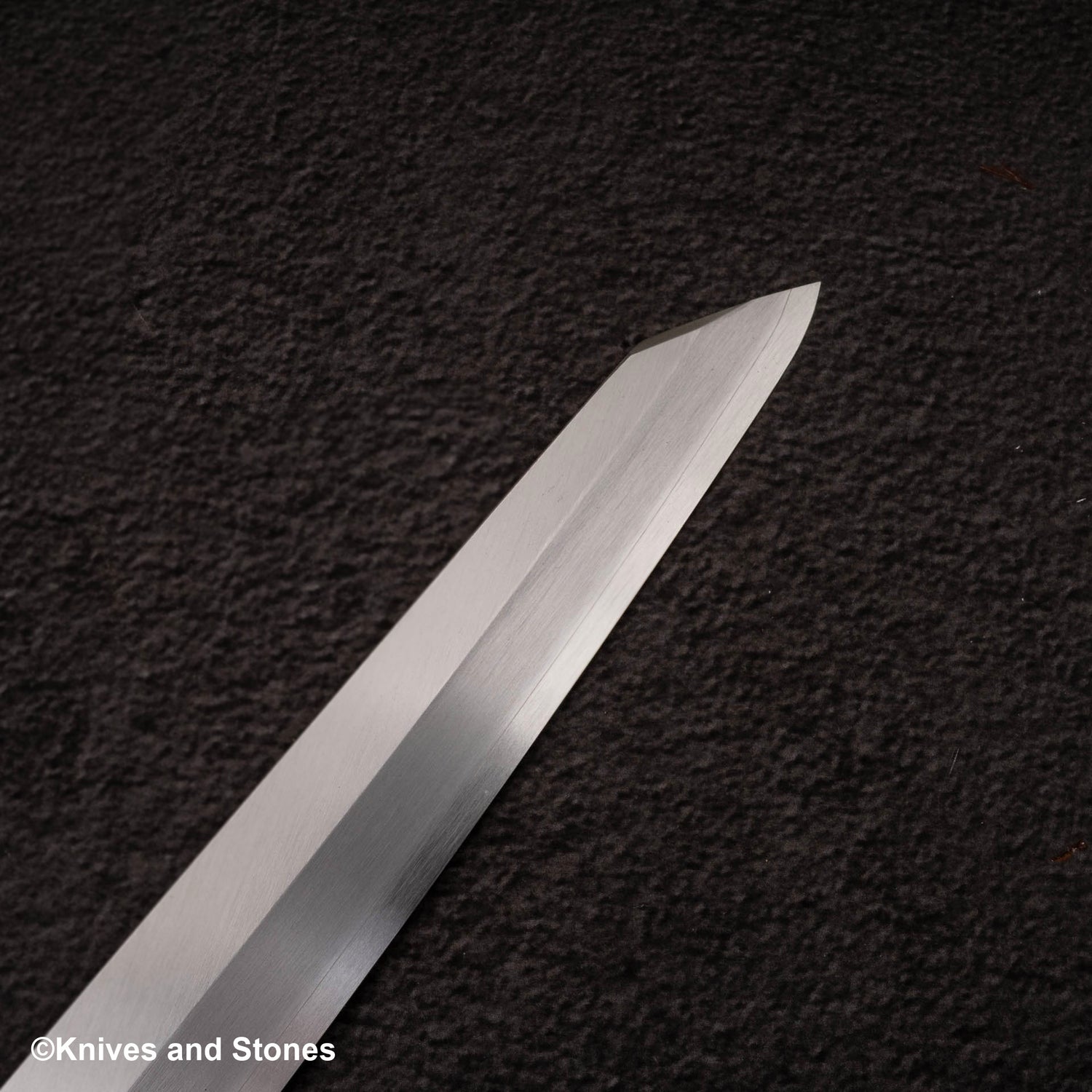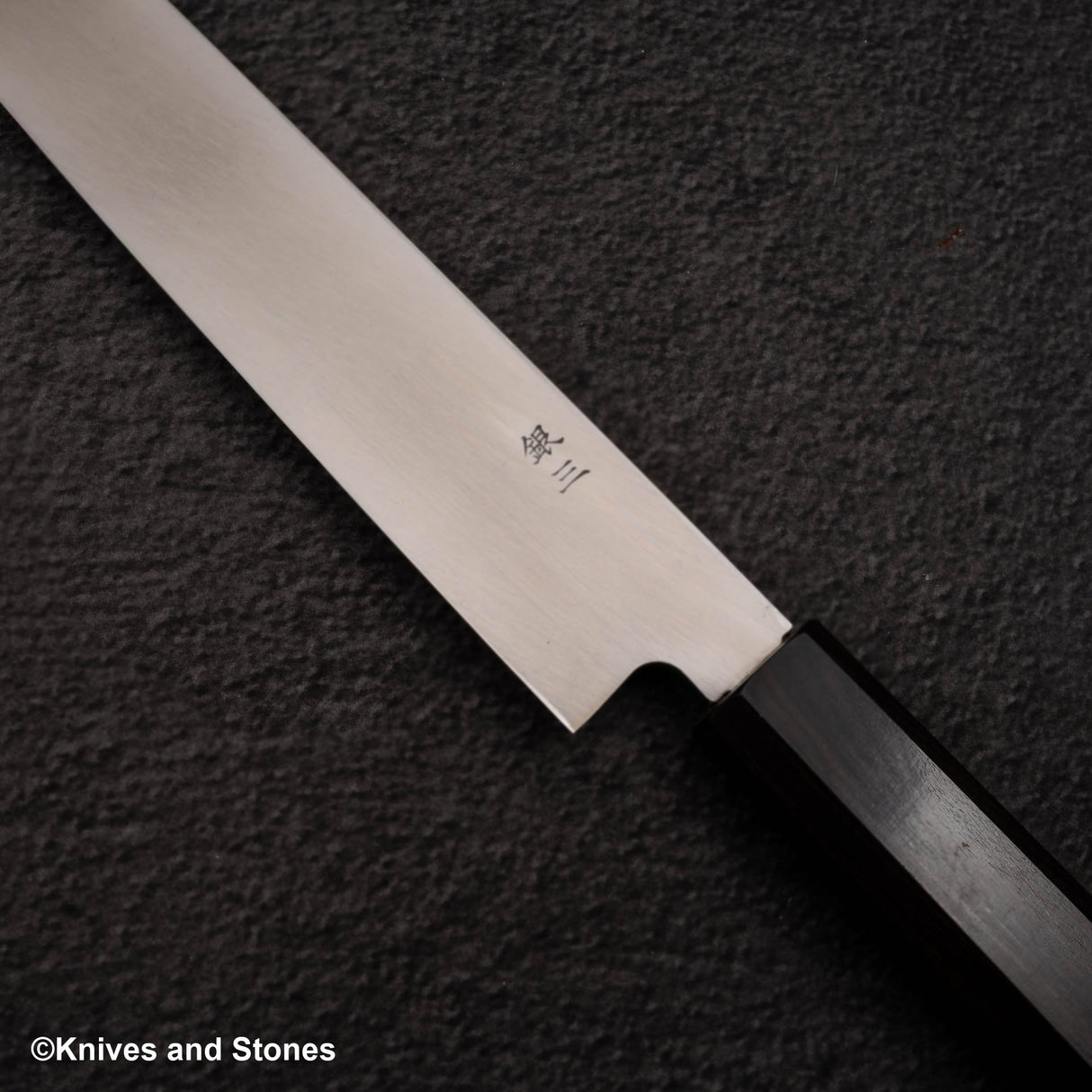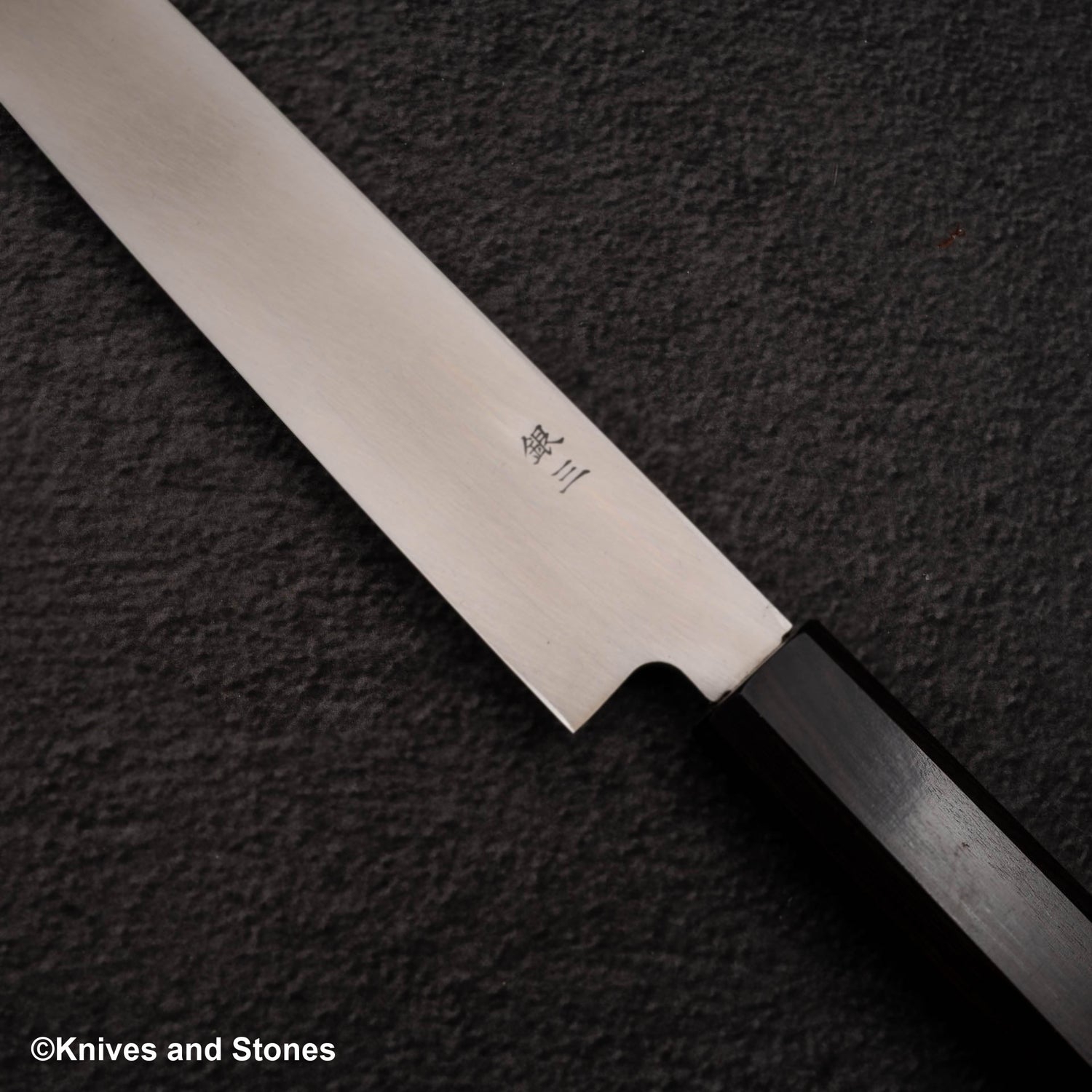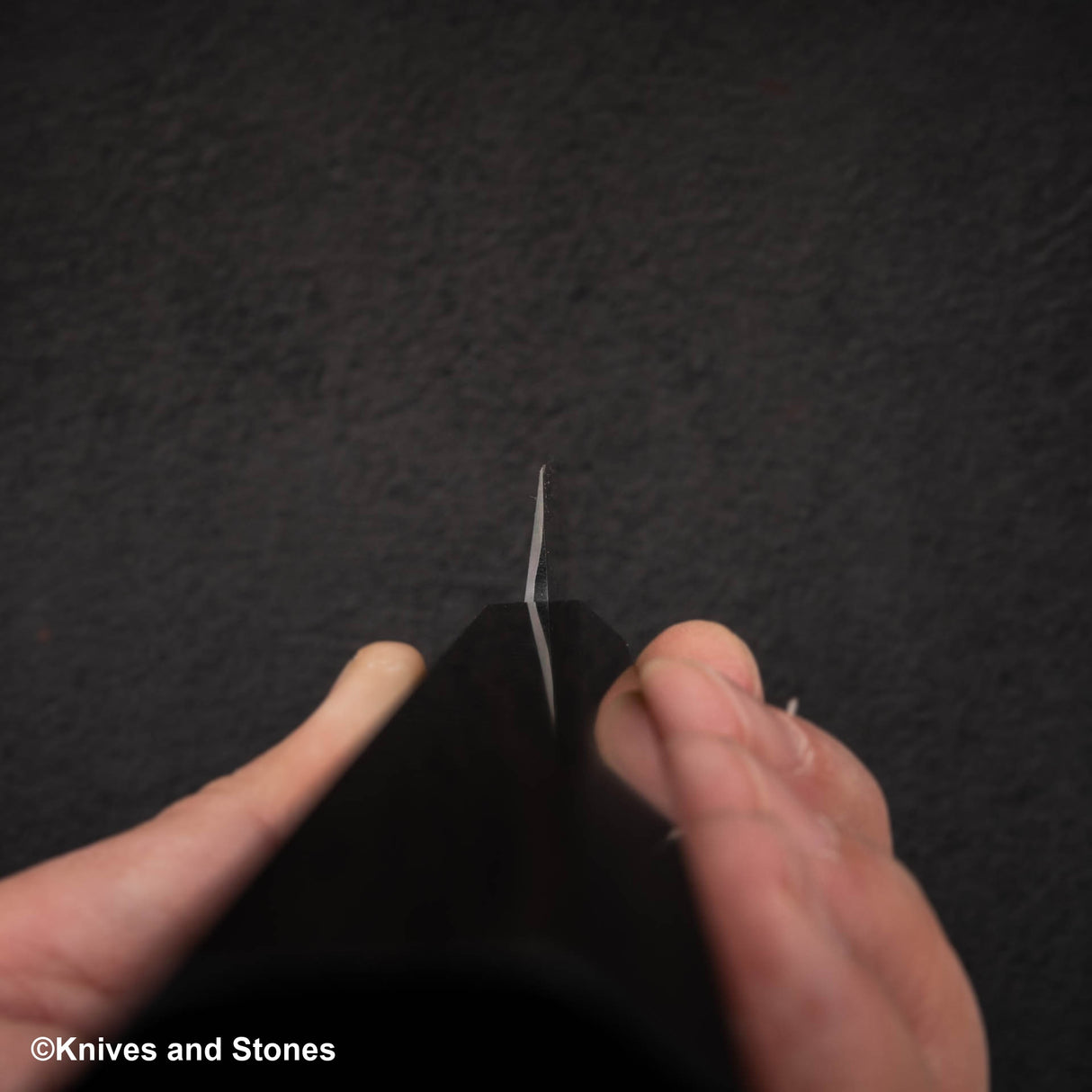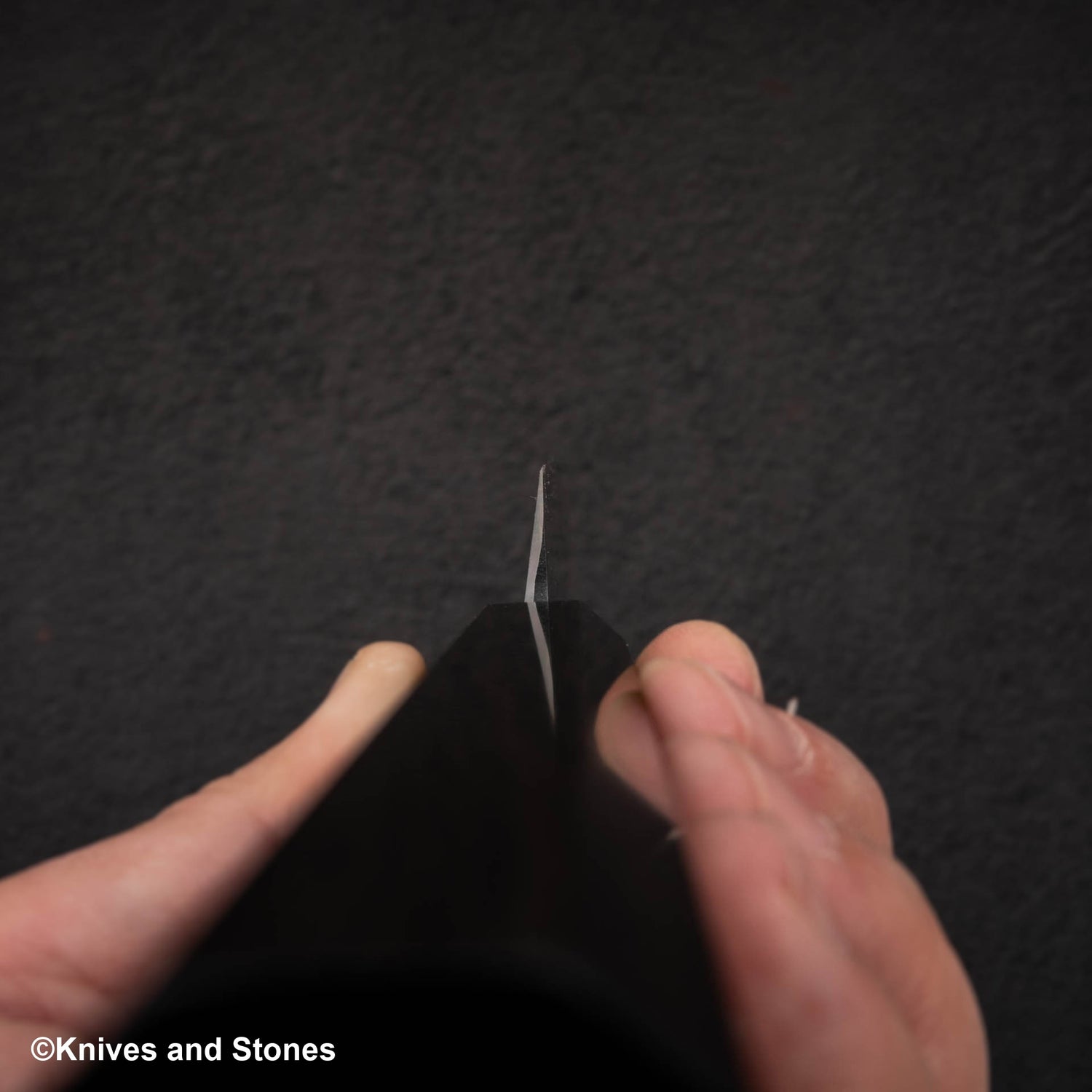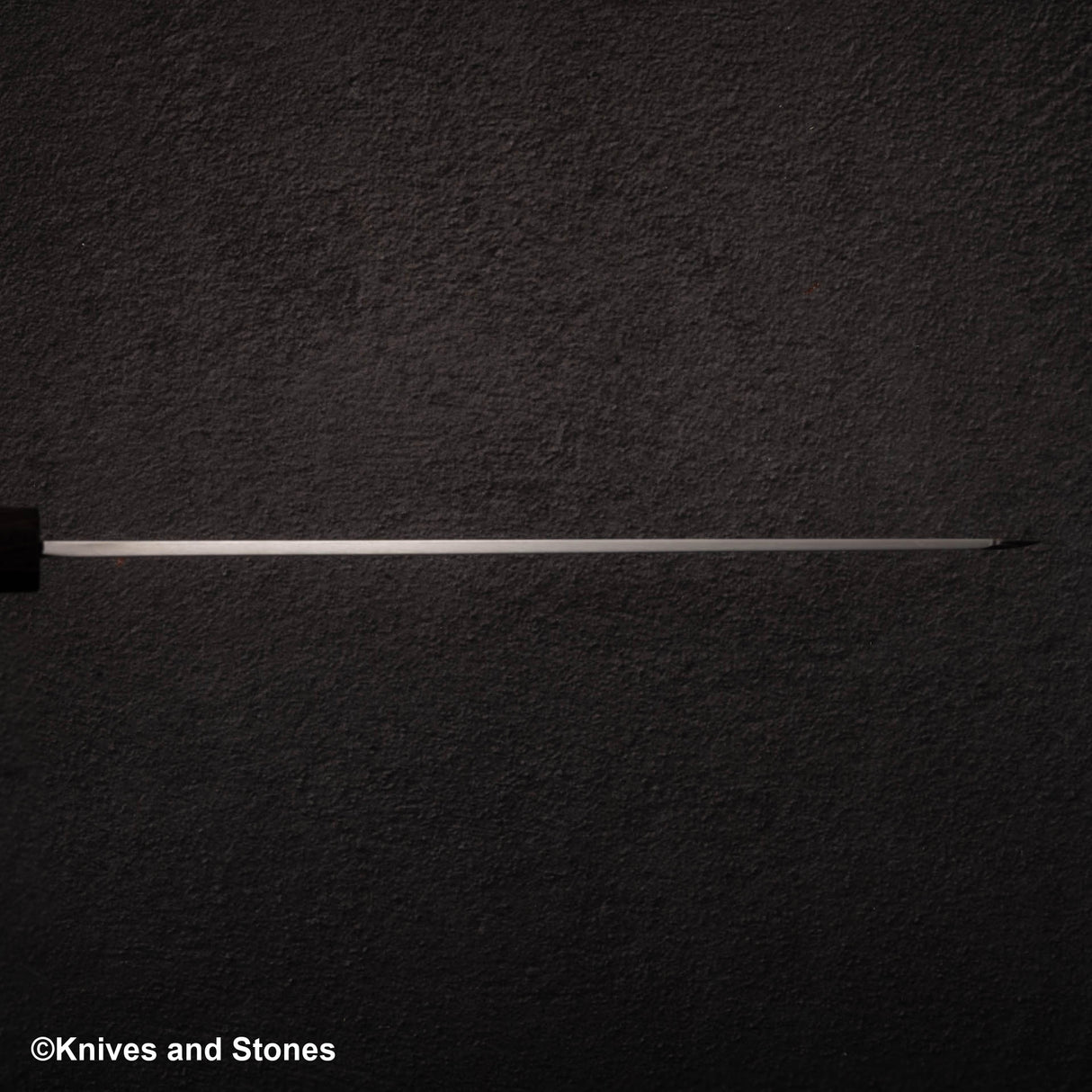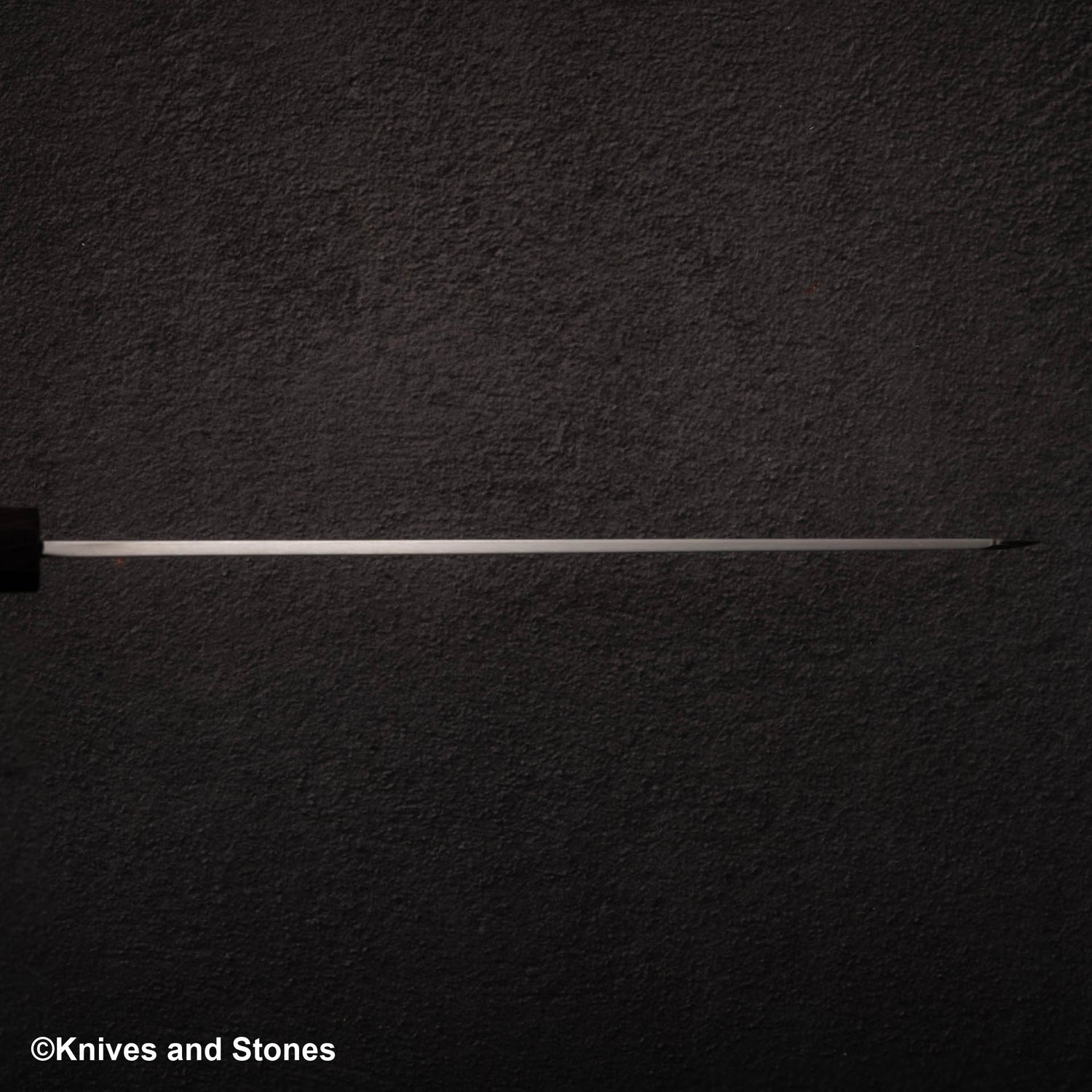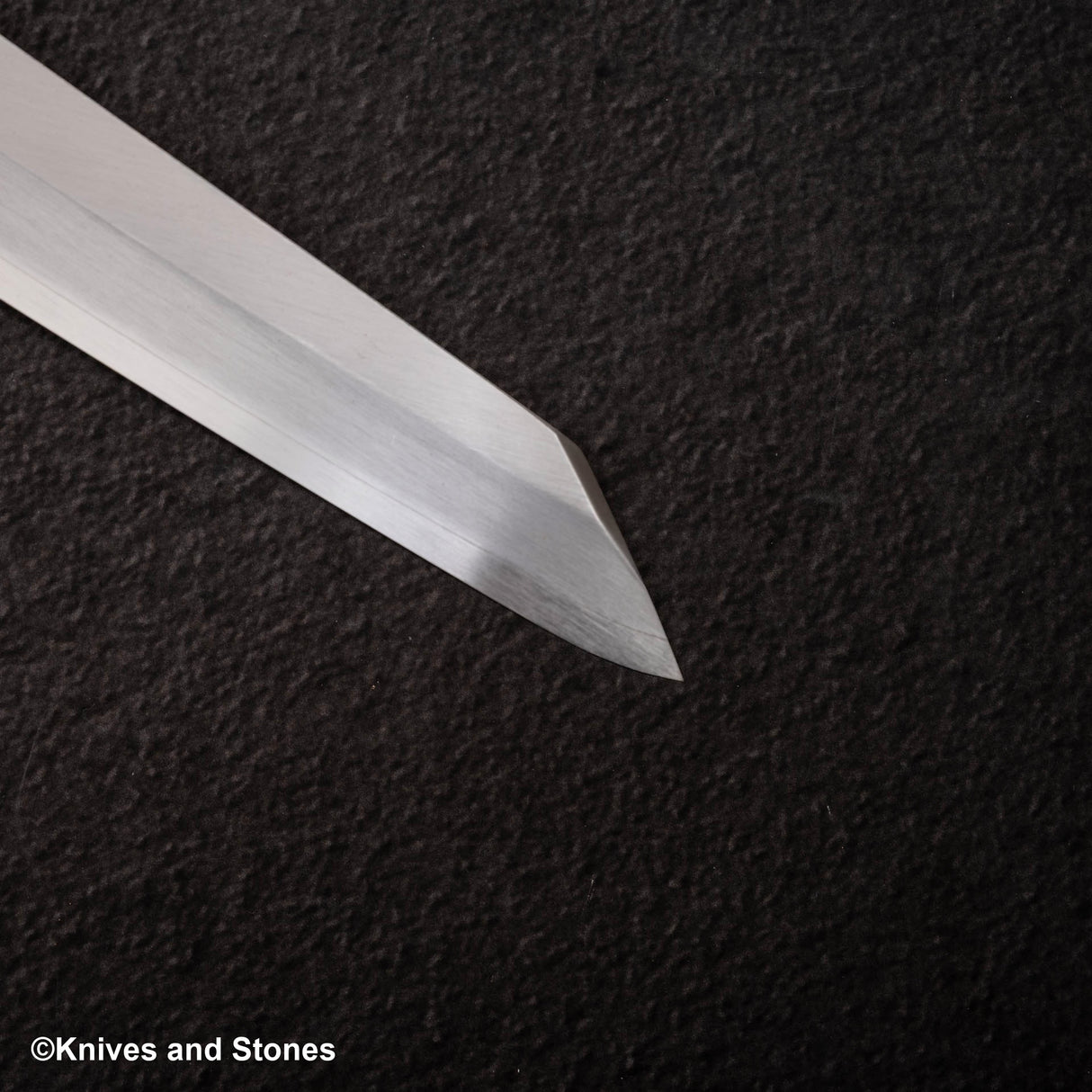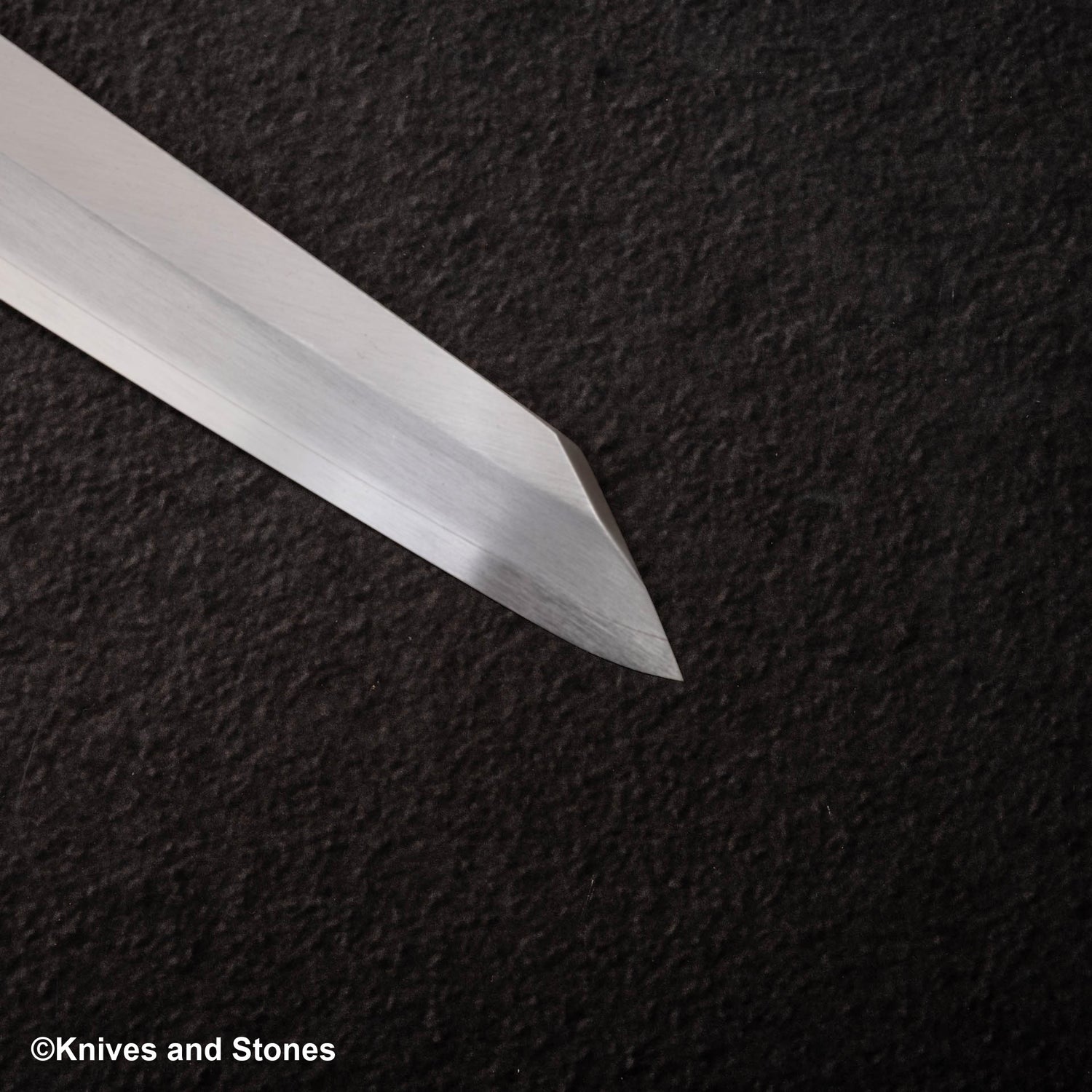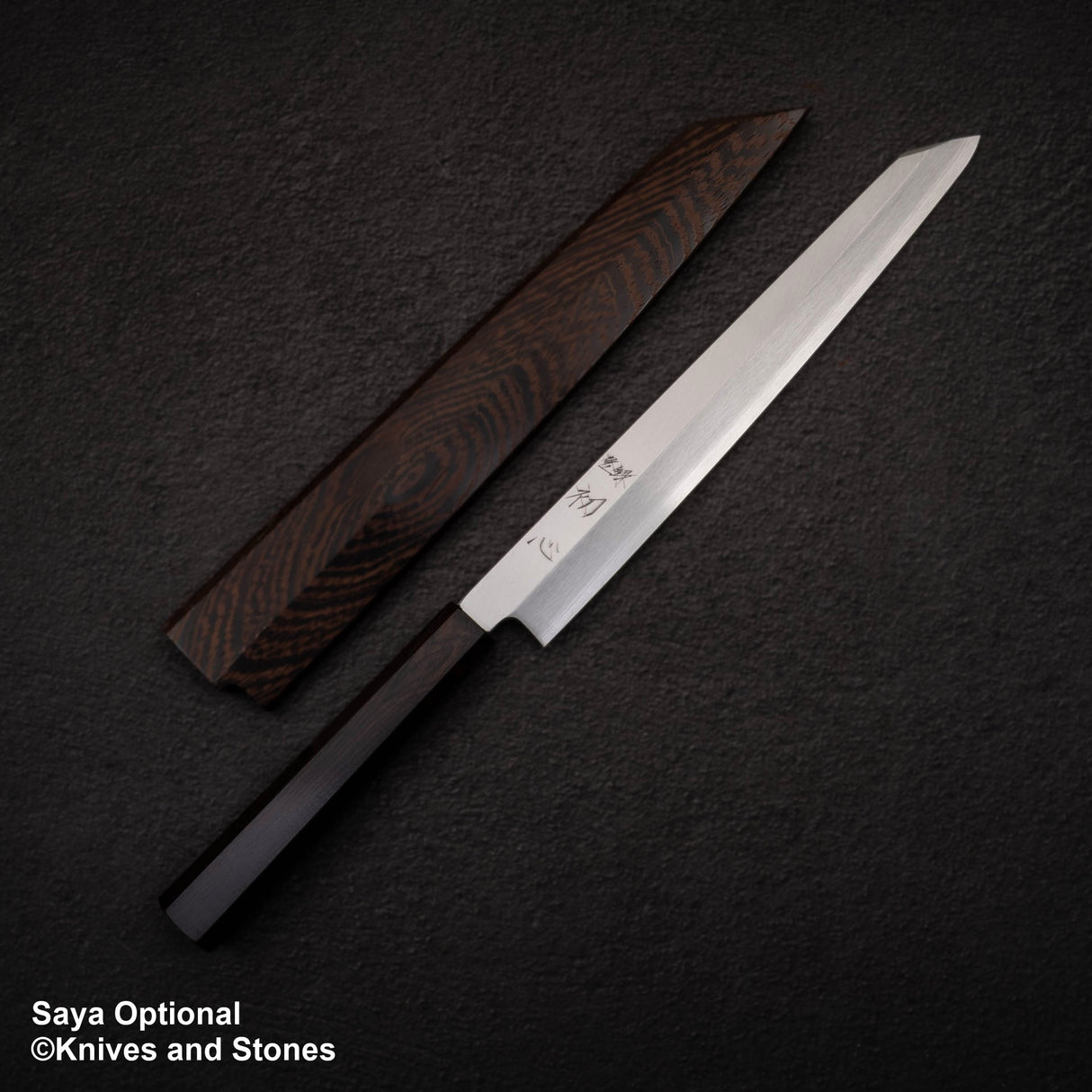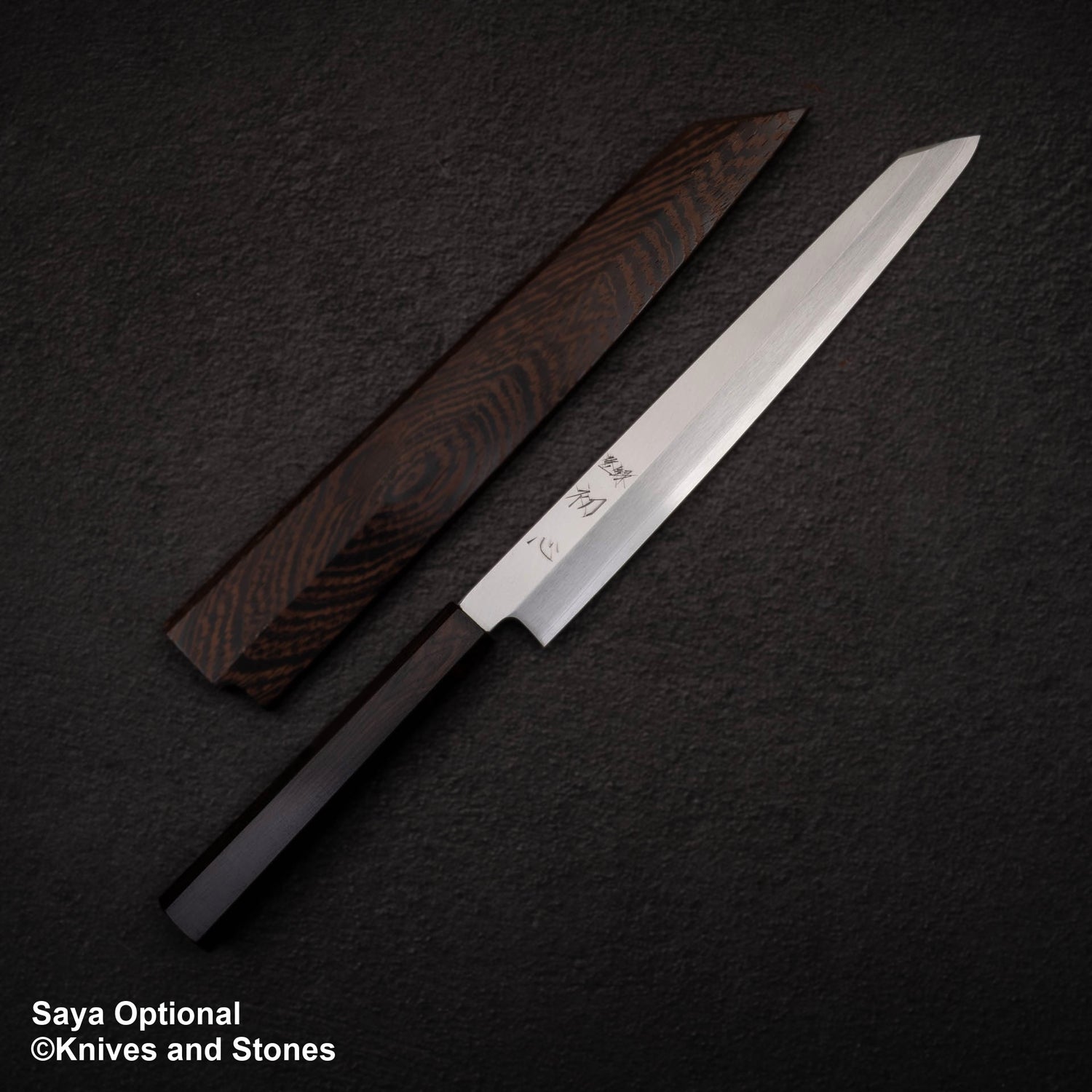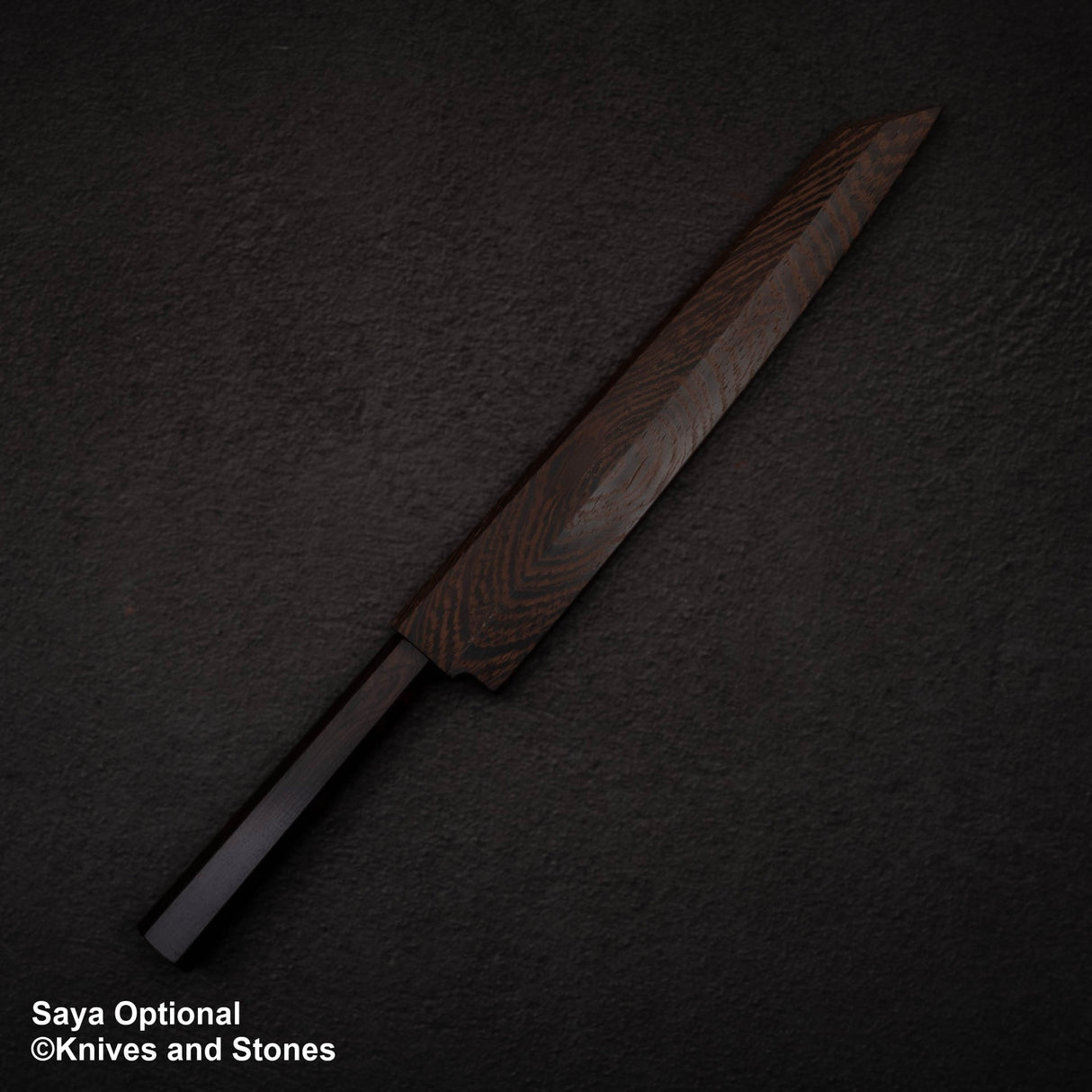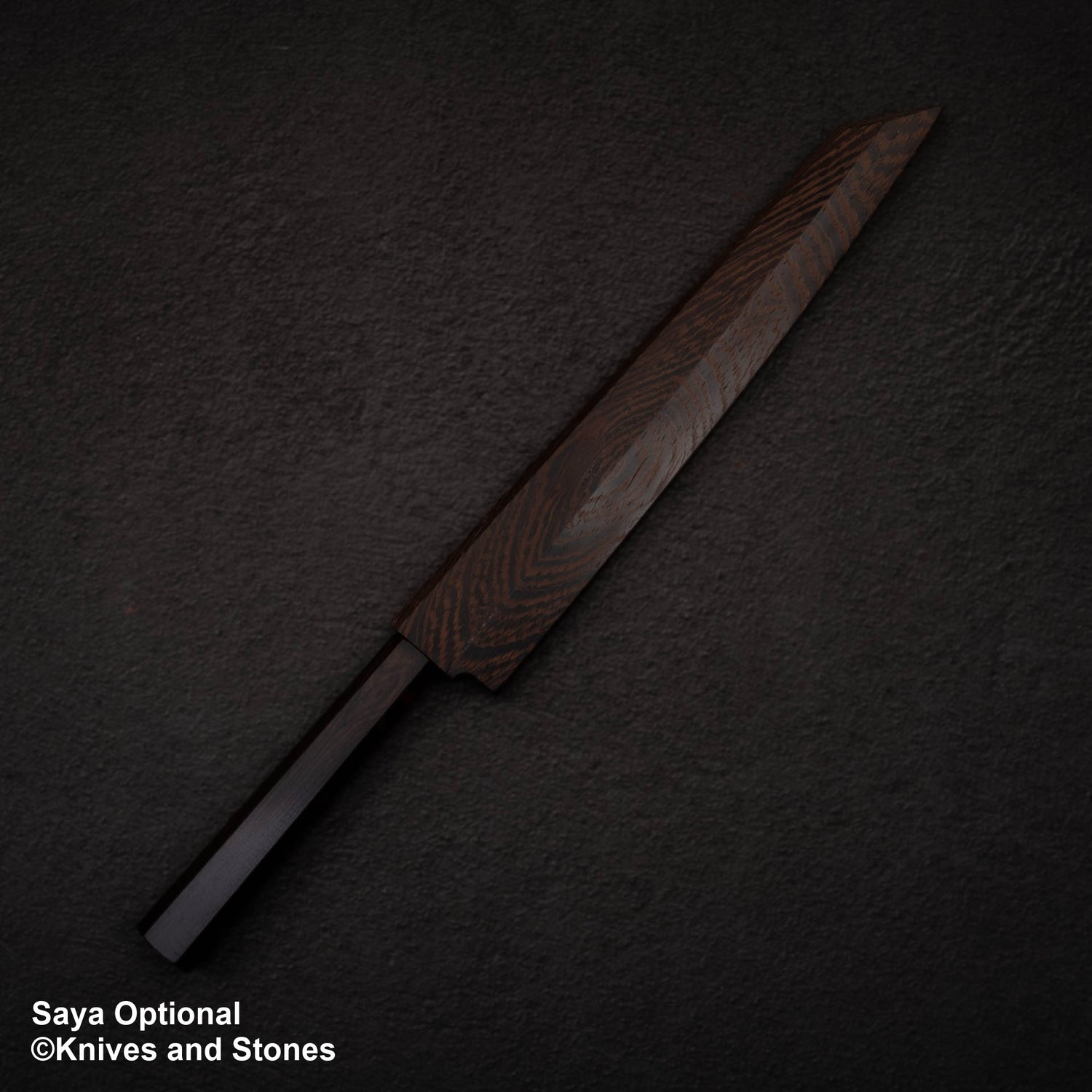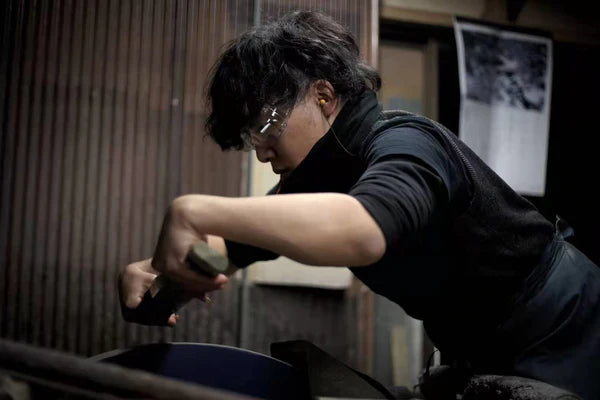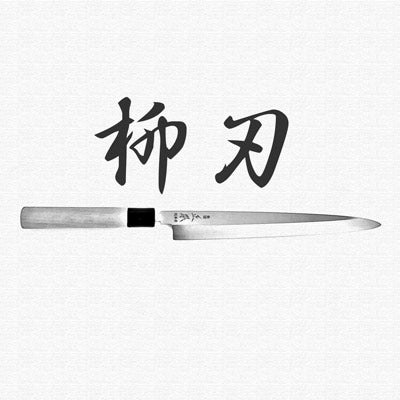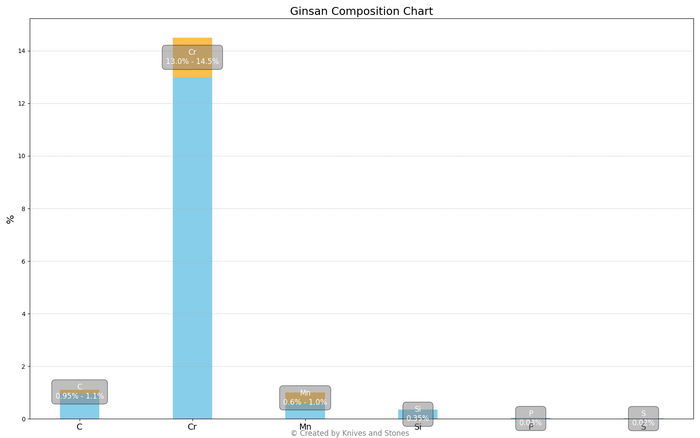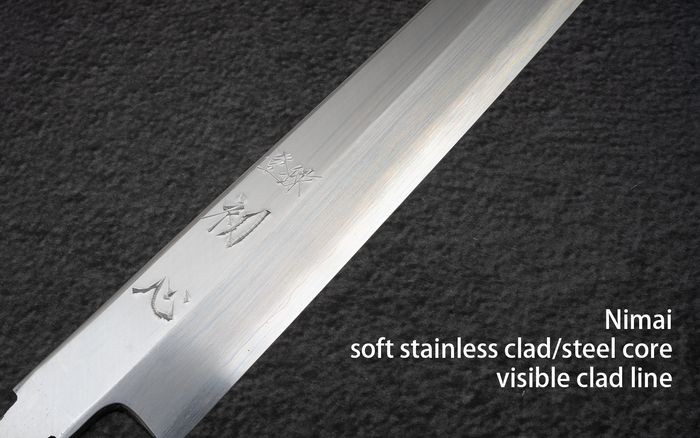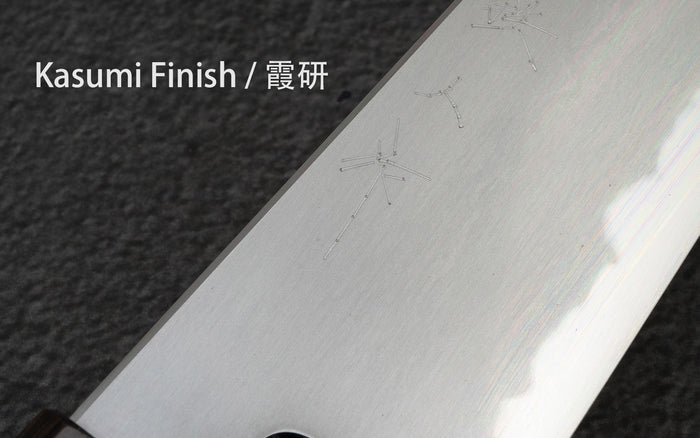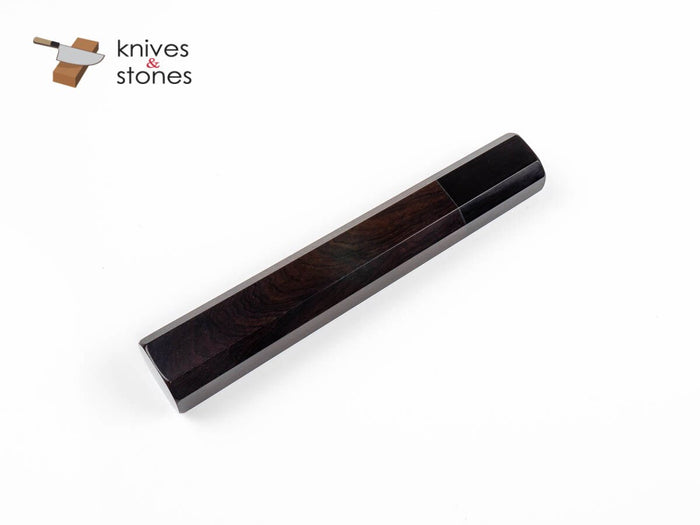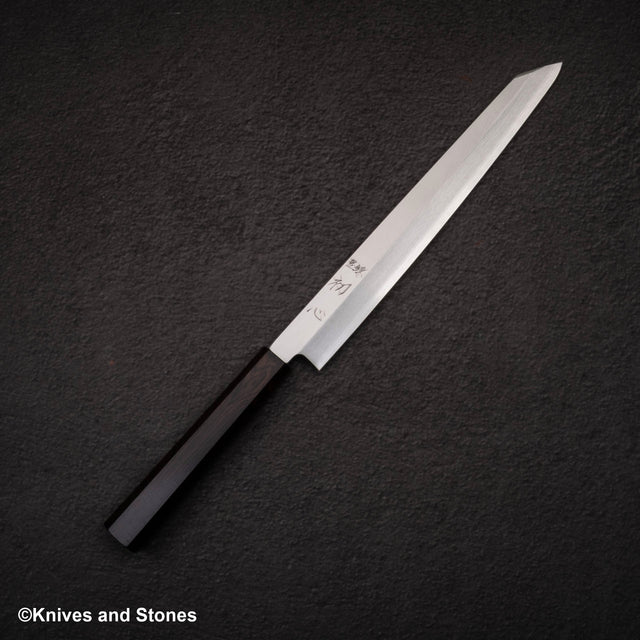K&S - Sydney | SKU:
HST-SHGA-GIN3-KYAN270
Hatsukokoro x Myojin Shirasagi Ginsan K-tip Yanagiba 270mm
$349.95
Unit price
/
Unavailable
Hatsukokoro x Myojin Shirasagi Ginsan K-tip Yanagiba 270mm is backordered and will ship as soon as it is back in stock.
Couldn't load pickup availability
Detailed Specifications
| Line | Hatsukokoro Shirasagi Ginsan Kasumi |
| Profile | Yanagiba |
| Bevel Type | Single Bevel |
| Weight | 221 g 7.8 oz |
| Edge Length | 261 mm .10.28 inch |
| Heel Height | 47 mm .1.85 inch |
| Width @ Spine | 3.6 mm 0.14 inch |
| Width @ Mid | 3.4 mm 0.13 inch |
| Width @ 1cm from Tip | 1.7 mm 0.07 inch |
| Steel | Ginsan / Silver #3 | Stainless |
| Blade Construction | Nimai - Stainless Clad |
| Hardness (HRC) | 60 - 62 |
| Surface Finish | Kasumi |
| Handle | Octagonal Ebony with Black Horn Ferrule |
| Region | Tosa |
| Best for |
|

| Pros | Cons |
|
|
|
Care Instruction
- Don't cut hard things! Japanese knives are brittle so bone hacking is a NO NO!
- Wash with neutral detergent after use, and wipe dry;
- Please don't wash knife with dishwasher, it will damage the wood handle;
- Be careful not to leave the knife close to a heat source for a long time;
- It is a lot more dangerous to cut with a blunt knife than a sharp knife!
- It is best to sharpen a Japanese knife regularly on a waterstone.

